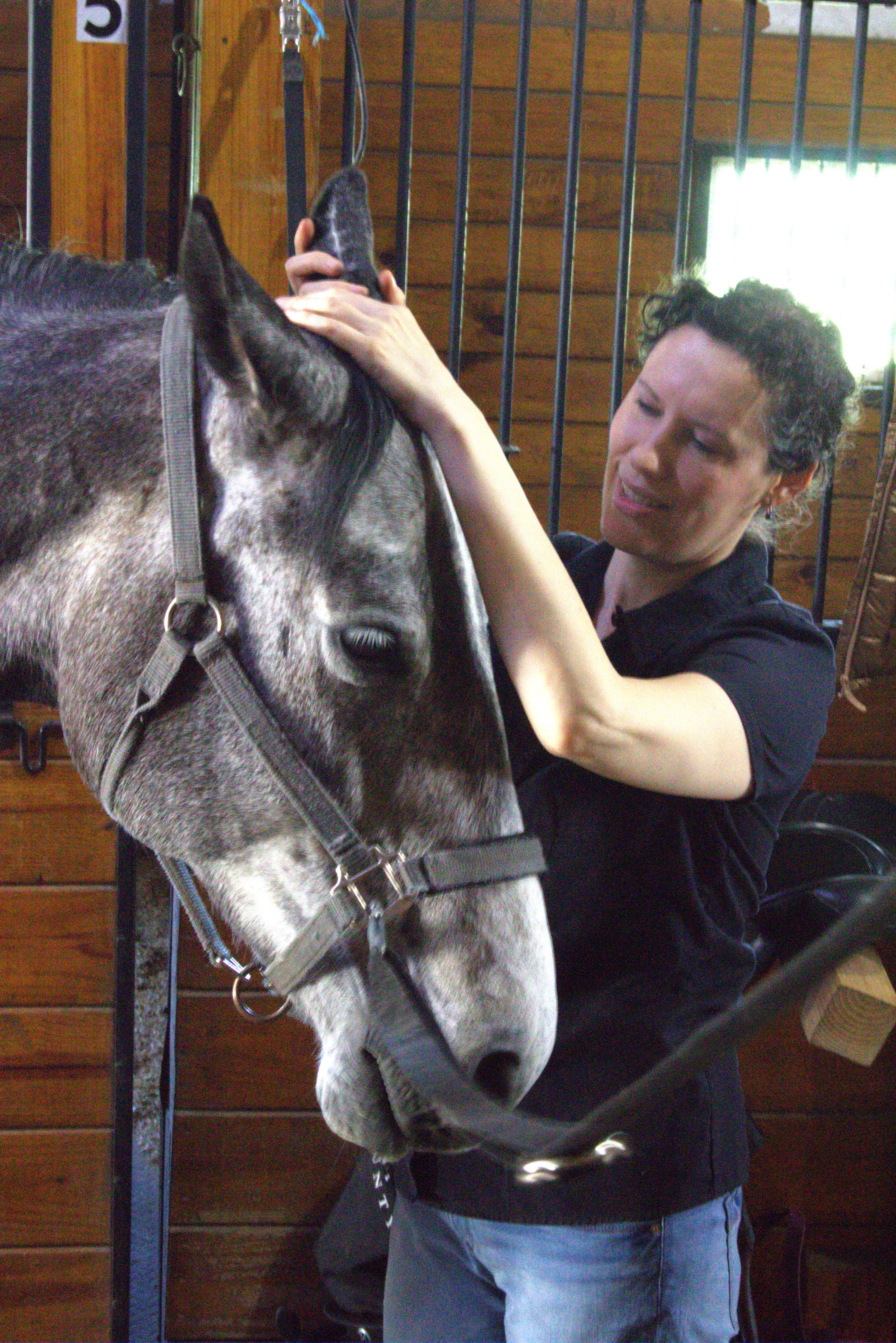
Meet Your Therapist: Rebecca DeCoster, LMT, CST-T, EBW, BCTMB
 My journey studying bodywork started
in 2006. I had chronic back pain from a car accident in 1999, and
wanted a deeper understanding of how to heal myself. I graduated
from the Soma Institute for Clinical Massage Therapy in 2007, and
continued on to study Equine Bodywork. Our equine friends are very
sensitive animals and require a mindful approach. I encourage
riders to receive work along with their horses, because the
rider's posture and level of skill will greatly affect the horse's
ability to balance and perform at his job. I continued with
equine-focused courses on biomechanics, anatomy and saddle fitting
before entering the world of CranioSacral therapy.
My journey studying bodywork started
in 2006. I had chronic back pain from a car accident in 1999, and
wanted a deeper understanding of how to heal myself. I graduated
from the Soma Institute for Clinical Massage Therapy in 2007, and
continued on to study Equine Bodywork. Our equine friends are very
sensitive animals and require a mindful approach. I encourage
riders to receive work along with their horses, because the
rider's posture and level of skill will greatly affect the horse's
ability to balance and perform at his job. I continued with
equine-focused courses on biomechanics, anatomy and saddle fitting
before entering the world of CranioSacral therapy.
It was through a particularly difficult equine client that I discovered CranioSacral Therapy. This young horse was so averse to almost every massage technique, that I decided to take a class after hearing a colleague's success story with another challenging animal. My experience during the first level of CranioSacral training transformed my ideas about what I wanted for my practice. A deep release in my sphenoid, a bone located near the center of the skull which comprises our sinus cavities, left me feeling lighter and just charged with an energy I still struggle to articulate. I knew this was something I needed to share with the world.
As I've delved deeper in my studies, I am repeatedly impressed by how powerful this light, gentle approach can be. Dr. John Upledger, an Osteopathic physician who unwittingly discovered the pulse of the CranioSacral system while assisting on a surgery, made a point of vigorously studying the effects of CranioSacral therapy on numerous medical conditions. His body of research has gained great acceptance in the medical community for its effectiveness in addressing concussions and chronic headaches, plus a host of other conditions, such as TMD (Temporomandibular Joint Disorder), Post Traumatic Stress, Learning disorders, Autism, Alzheimer's and Dementia, spinal cord injuries and more.
Visceral work is highly complementary to CST because it gently supports the processes of our internal organs. Obviously, all systems are affected by adverse fascial strains, but this is also true for the organs. Restrictions within the abdominal (also thoracic, cranial and pelvic) cavity can manifest outwardly as joint pain, limited range of motion, and chronically recurring musculoskeletal injury. Let's assess how your whole body is moving to promote a more harmonious relationship across systems.
If you've been frustrated by a lack of answers from your medical journey, or scans and bloodwork in the "normal" range that isn't matching up to your felt experience, you owe it to yourself to try this work. You have nothing to lose but pain, and everything to gain.
A Focused Touch, Chicago IL
Rebecca DeCoster LMT, CST-T, EBW, BCTMB
email: afocusedtouch
at gmail dot com |
618.303.1415